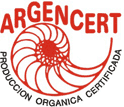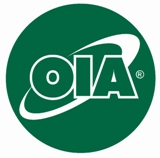IFOAM Defends Internal Control Systems for Grower Groups
In the course of implementing re-accreditation of organic certification bodies and conducting training sessions for them, the USDA National Organic Program (NOP) has stated that it will now
fully address and enforce all regulatory requirements regarding the certification of grower groups with internal control system.? As a result, according to the NOP, the practice of internal
inspection by paid employees or contractors of grower groups, combined with a small percentage of third party “external” inspections, will be evaluated as non-compliant with the USDA NOP regulation.
The regulation requires the fulfillment of conflict of interest provisions and inspection of all units of the operation.Although there are not yet any formal, written USDA advisory documents on this matter, the organic sector is raising a high degree of concern about the risk the announcements present to the system of grower group certification and the livelihoods of thousands of small producers who rely on the system to facilitate certification and export of their products to US markets. Informal coalitions in the US have been formed to address the USDA on this matter.? The list serve of the international Certification Body Forum, initiated by IFOAM, has been used for a vigorous discussion of potential consequences and potential interventions.? Many questions and comments have come into the IFOAM Head Office on the topic.? One of the most frequent questions coming into the Head Office is “What is IFOAM doing about this situation?”? This Special Announcement addresses that question.
IFOAM’s Response and Strategy
IFOAM maintains its role as the international leader to promote and defend internal control systems and group certification for organic production and processing.? The Head Office has done the first necessary thing, which is to identify funding to support IFOAM’s role in the context of the current situation. An IFOAM board-staff task force has been formed, and members of that task force have been in direct contact with the USDA NOP, including a meeting with USDA AMS Administrator Lloyd Day, Assistant Administrator Ken Clayton and NOP Program Manager Mark Bradly, to obtain information about its perspective and to deliver the message that a solution must be found that does not abandon small producers and diminish US organic markets.
We are formulating plans for more specific and direct dialogue with the NOP to identify common ground and feasible strategies for solutions.? Part of the solution will be to bolster the credibility of the whole system of group certification. We envision doing this through case studies of best practices, and additional efforts toward capacity development and harmonization of internal control and certification of grower groups.? IFOAM is uniquely positioned to deliver this critical support to ensure the long-term stability of grower group certification
We will also share information and cooperate with other organizations and coalitions that are working constructively on the current USDA-NOP situation. However, IFOAM will take its own appropriate role, which may not involve formally signing-on to the strategies and advocacy letters of others, especially if it could compromise our own leadership strengths, credibility and positions on group certification.
IFOAM’s Pioneer Role and Leadership on Grower Groups and Internal Control Systems
Starting about 20 years ago (before government regulations), IFOAM engaged with and supported the cooperation of some certification bodies and producer groups to enhance access to organic certification by groups of small producers in developing countries.? IFOAM continued to work on developing the group certification model, including internal control systems, to a high degree of quality assurance and integrity.? It then incorporated requirements for group certification into its Accreditation Criteria for the Certification of Organic Production and Processing, which functions in IFOAM Accreditation, thus instituting this approach in a quality management framework.?
IFOAM has never ceased to be an innovator and advocate for the group certification approach. IFOAM also reached beyond its own IFOAM Accreditation Program to further develop quality management for group certification. We sponsored a series of three workshops that drew in all kinds of certification bodies and other stakeholders to develop improvements to the system and foster harmonization of approaches. The results of these workshops were then turned into training manuals on group certification and internal control systems for certification bodies, and for grower groups.? Pilot trainings were held and the manuals were further improved. Also, in 2003, the IFOAM World Board issued a position paper, Internal Quality Assurance System and Group Certification for Organic Production and Processing. Click on the link to read the position paper.? The workshop/training results and the position paper were made available to the European Commission for development of a guideline on group certification, and also to the US National Organic Standards Board, which also prepared an advisory guidance document for the NOP on the topic of grower group certification.?
The Power of IFOAM Members
A great many IFOAM members are potentially affected if there is a loss of US market access due to US rejection of group certification schemes. Information is powerful and your information is needed.? Information about the potential economic consequences to producers and to US markets is very much needed.? Already IFOAM members have submitted information about the value (and therefore potential loss of value) of products produced by grower groups and exported to the US.? This is a call for more IFOAM members to submit this type of information.?? Please contact Christiana Christen (c.christen@ifoam.org) to discuss this call for information.
IFOAM has produced much management support material for grower groups, but now needs information on how these systems are actually structured and working on the practical level.? So this is also a call to members – especially to certification bodies, traders, and grower cooperatives –? for transparency on how grower groups are currently organized and functioning, and the degree to which they are (or not) following good practices as outlined in the IFOAM Accreditation Criteria and in the IFOAM training manuals on group certification. If you are involved in group certification and do not have the training manuals, you are urged to obtain them.? Members may download the manuals for free via the IFOAM Intranet in English, French or Spanish at by clicking here. In addition, the public may purchase a cd or download of the manual in IFOAM's bookstore. If you can help us to identify case studies for best practices in group certification or areas in the system that should be targeted for improvement, please let us know.? Again, contact Christiana Christen.
More IFOAM Briefings Ahead
This is the first of a series of briefings that will be issued about IFOAM's work on the grower group certification issue. As IFOAM representatives learn more and intervene more, the results will be reported and IFOAM members will be asked for more forms of support on the matter.? Please watch your email for these future briefings through the Insider and in IFOAM in Action.
IFOAM Special Announcement, Responsible: Angela B. Caudle, Contact: Neil Sorensen
Head Office Contact
Charles-de-Gaulle-Str. 5
53113 Bonn, Germany
Tel: +49-228-92650-10
Fax: +49-228-92650-99
Email: headoffice@ifoam.org
http://www.ifoam.org
















